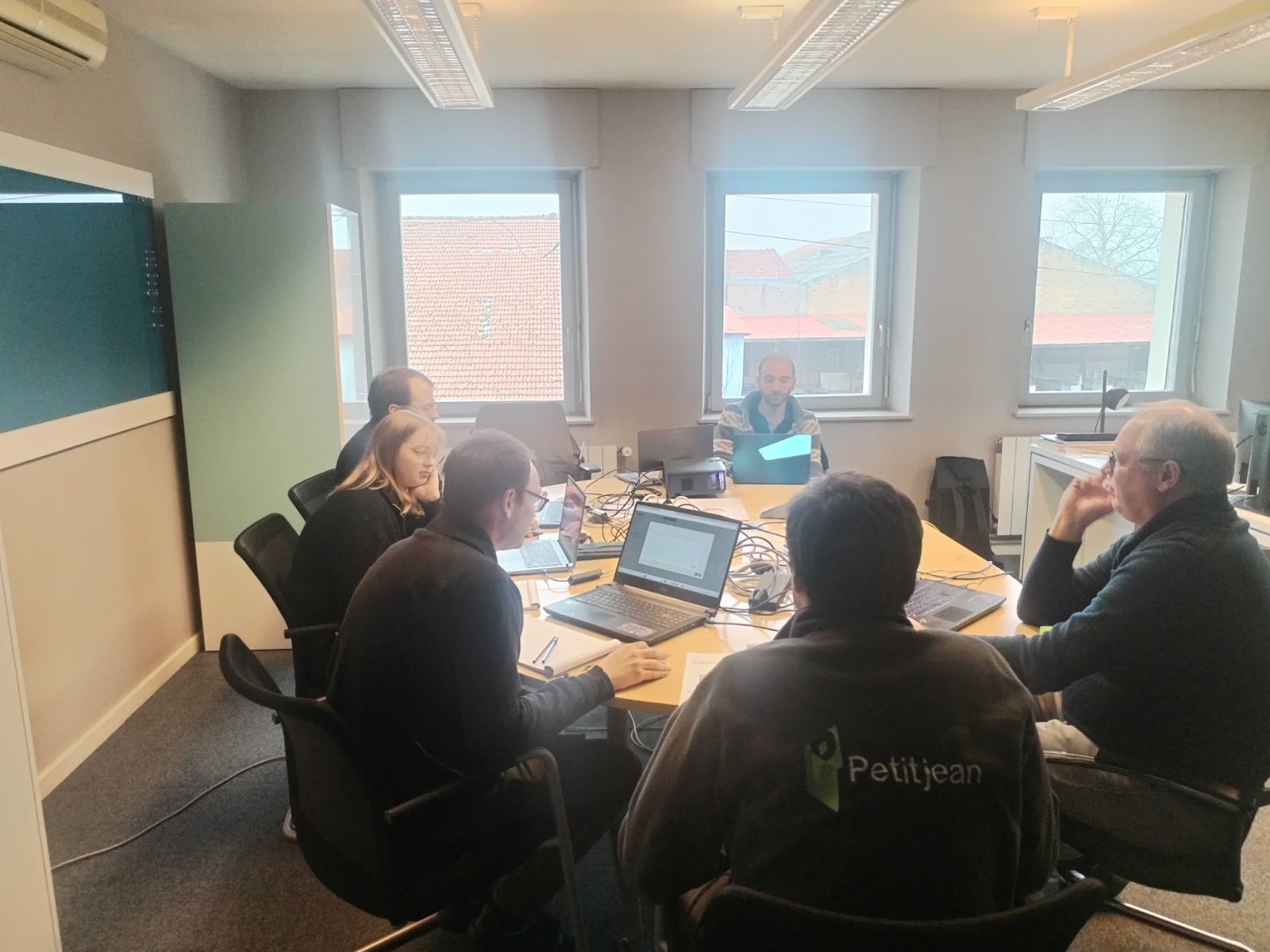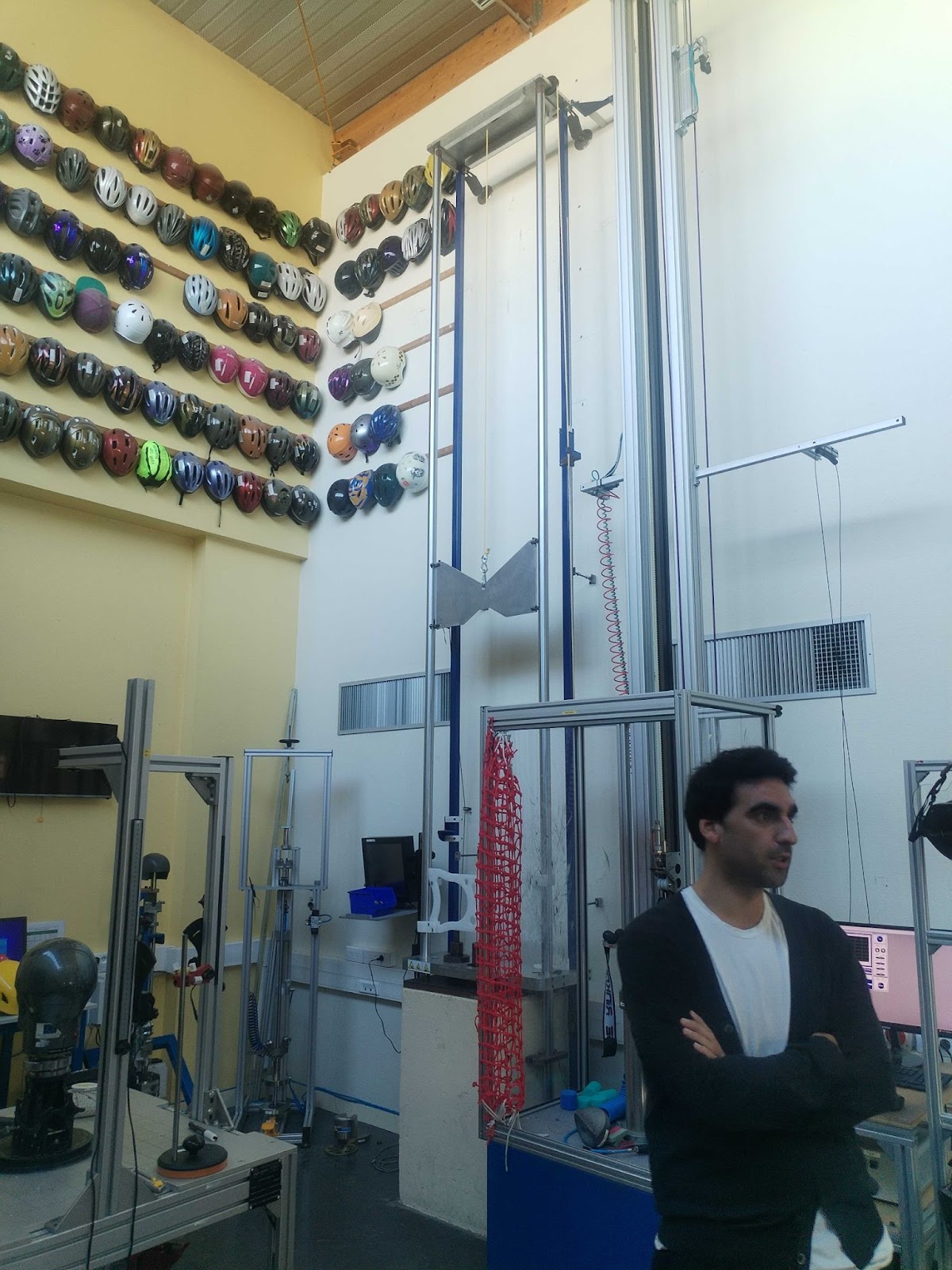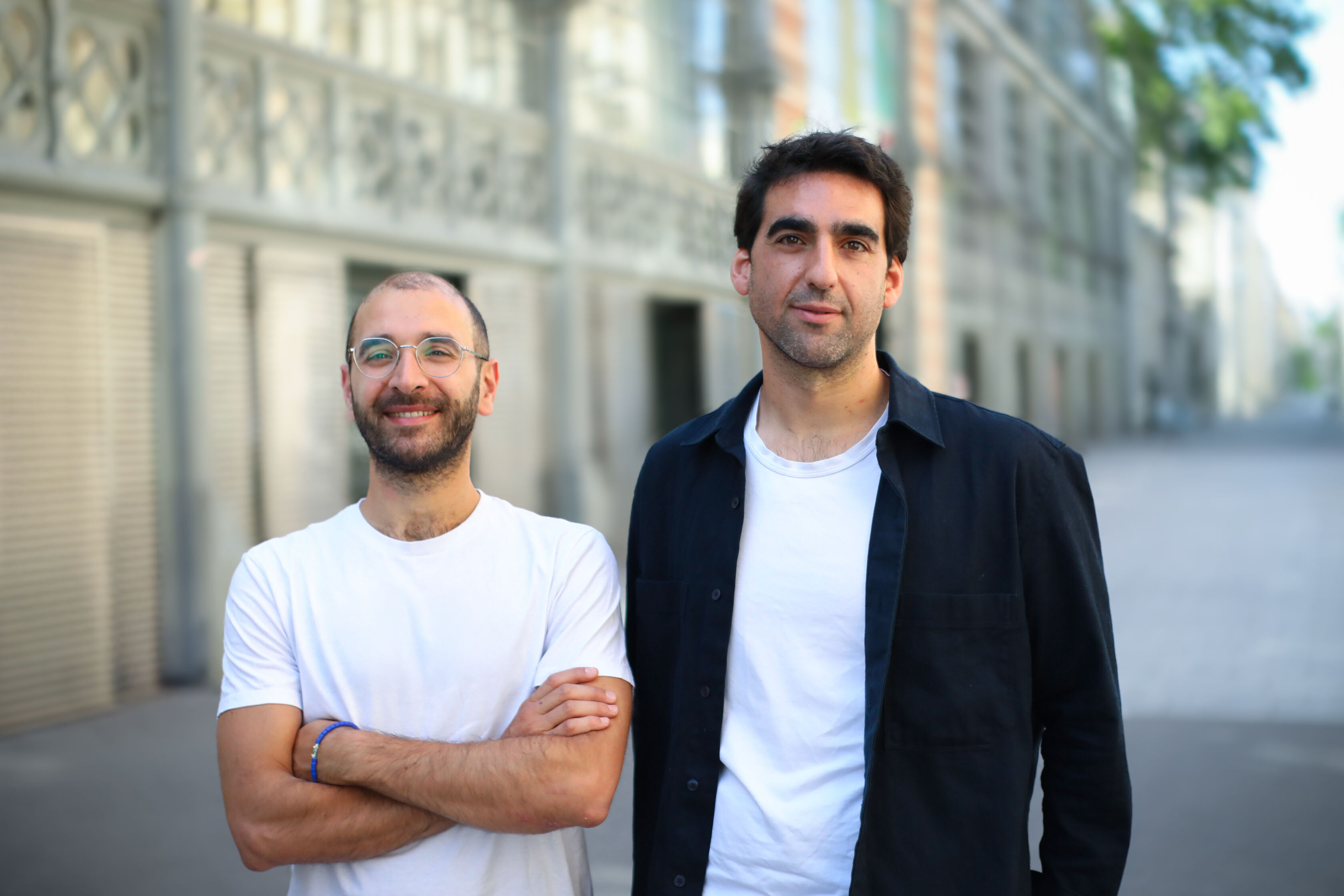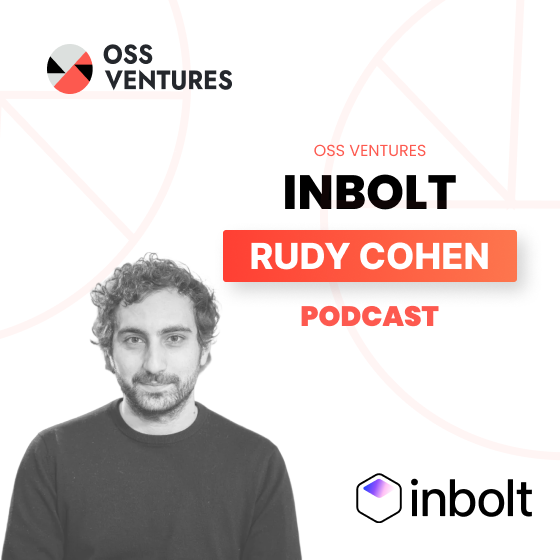At OSS Ventures, we’re fortunate to be a team of builders creating startups to transform the world of operations. Since our launch in 2020, we’ve co-built over a dozen companies alongside inspiring founders and visionary industrial partners, deploying software in factories across Europe and beyond. We also made it a habit to chronicle the early stories of each venture we launch – how we stumbled upon a problem space, teamed up with a founder, navigated the idea maze, and set the startup on a trajectory to scale.
This one is a special story for us. It’s about tackling an unsexy but critical pain point in manufacturing (quoting jobs and projects), blitz-building a solution in record time, and seeing immediate impact on the bottom line. Relief is the latest startup to graduate from our venture studio, and its journey has something for everyone:
- A massive hidden problem: How inaccurate quotes silently bleed manufacturers, with up to 30% of quotes losing money due to estimation errors.
- Founder-market fit: An experienced founding team – Micka (a second-time CEO, ex-EMEA country manager of a startup that IPO’d) and Jon (a third-time CTO) – who knew this pain and attacked it with passion.
- Validated by the field: 150+ user research calls and a real-world co-building partnership with a woodworking factory (led by a literal lumberjack-turned-industrial CEO) shaped the solution from day one.
- AI meets industry: A clever use of AI and pattern recognition that turns quoting from guesswork into a data-driven science, instantly boosting profitability for clients.
- Lightning-fast traction: From ideation to €250K ARR in just 7 months (an OSS Ventures record), culminating in a €3.2M seed round led by Daphni to fuel the next chapter.
Sounds interesting? Let’s dive into how Relief came to be, and why we’re so excited to back it.

The 30% Problem: Quotes That Bleed Money
Picture this: a manufacturer gets a Request for Quote (RFQ) for a complex custom order. The sales manager and engineering team huddle to figure out a price. They sift through spreadsheets and tribal knowledge – maybe Fred in the corner “remembers a similar job back in 2017” – and they cobble together an estimate. They hit Send on the quote and cross their fingers. If they win the job, they can only hope they didn’t underprice it by mistake.
Too often, that hope is in vain. By the time the project is delivered, reality sets in: it took 20% longer to produce, or an unexpected material cost spike ate the margin. The quote was wrong, and the job that was supposed to make money ends up barely breaking even (or worse, losing cash). Sound familiar? It should.
In our research across manufacturing sectors, we found roughly 30% of quotes are so inaccurate that the resulting projects lose money. Think about that: nearly one in three jobs ends up a financial hit because of quoting errors.
On the flip side, many quotes overshoot on price and lose the bid entirely – a silent opportunity cost that’s hard to quantify but just as painful. Either way, poor quoting is robbing manufacturers of profits.
Why is quoting so often off-target? A few reasons stood out:
- Mind-boggling complexity: Quoting a manufacturing project isn’t like pricing a product off a menu. Every job can be a snowflake – different materials, processes, setups, and quirks. Estimating all the costs and timings requires juggling thousands of variables, from raw material yields to machine hours to labor rates. One small oversight (say, a special welding process or an extra quality check) can throw off the whole estimate.
- Tribal knowledge & guesswork: Walk into many factories and you’ll find that quoting lives in the heads of a select few individuals. Decades of experience have taught them rules of thumb (“If it’s stainless steel, add 15% more time” or “Customer X always negotiates 10% off”). But this knowledge isn’t written anywhere – it’s human, tribal, and fallible. When Fred is out sick or misremembers a detail, the quote still has to go out on time, often with a best-guess.
- Lack of a feedback loop: Amazingly, even after a project is done, many companies don’t rigorously compare the quoted estimate to the actual costs incurred. The team is already off to quote the next job, so any lessons from the last misquote are lost. Without a learning mechanism, quoting processes rarely improve – the same mistakes happen over and over.
- Subpar tools: Despite all the Industry 4.0 buzz, a huge number of manufacturers quote jobs using Excel spreadsheets (or even pen and paper). Others use generic ERP modules that are clunky and not tailored for detailed estimating. There’s usually no smart software watching for errors or suggesting improvements. It’s 2025, yet quoting often feels stuck in the 1990s.
The bottom line: quoting is hard. It’s a high-stakes guessing game, and when it goes wrong, the company’s bottom line bleeds. This widespread pain was a flashing red signal to us. We love these kinds of overlooked problems at OSS – the “unsexy” operational headaches that are hugely consequential. So we decided to dig in and do something about it.
Founders & Validation: 150 Calls and a Lumberjack

Tackling a problem this gnarly required the right people. Enter Micka and Jon, the founders of Relief. Micka is a second-time CEO with the scar tissue to prove it – he previously scaled a company and even served as EMEA country manager for a startup that eventually IPO’d. He knows what high growth looks like, and he’s intimately familiar with the cost of getting things wrong. Jon, our technical co-founder, is on his third startup rodeo (with two prior CTO stints under his belt). He’s an engineer’s engineer who has built tech teams from scratch and isn’t afraid to dive into hard problems. When we started discussing the quoting conundrum, it was immediately clear to all of us: this was a massive opportunity hiding in plain sight, and Micka and Jon were uniquely equipped to seize it.
But even the best founders start by listening. So, instead of building a product on day one, we went into discovery mode. The Relief team (joined by our OSS Venture builders) conducted over 150 user research calls with people who live and breathe this problem – factory owners, production directors, sales managers, estimators, you name it. We gathered stories of quoting nightmares from aerospace to woodworking. We heard about the million-euro quote won by underbidding everyone (and how the manufacturer then lost money fulfilling it). We heard about the quotes padded so heavily (to avoid those losses) that the customer walked away. Across industries and company sizes, the refrain was the same: “Quoting is one of our biggest headaches. There’s got to be a better way.”
One of those early conversations was with the person who became our first co-builder: the CEO of a woodworking company – a no-nonsense gentleman who actually started out as a lumberjack in his youth. His factory was custom-making wood structures and furniture, and quoting was their bane. He shared how they’d sometimes win bids at prices so low they’d pray to just break even, and how every quote felt like a gamble. His words stuck with us: “I’m basically guessing and hoping on every big quote. It shouldn’t have to be this way.” That raw frustration (and willingness to help find a fix) made him an ideal co-building partner for Relief. He essentially opened up his factory as a testing ground for our ideas, eager to get relief in every sense of the word.
Through dozens upon dozens of such interviews, patterns began to emerge. We mapped out how quoting typically flows (or fails to). We noted where human intuition did okay and where it invariably broke down. By the end of this extensive research sprint, we had absolute conviction in two things: 1) the pain was real, pervasive, and costly; and 2) if we could build a solution that significantly improves quote accuracy, manufacturers would embrace it with open arms. Only then did we allow ourselves to start brainstorming the product.
AI to the Rescue:

From Gut Feel to Data-Driven Quotes
Once we understood the problem space inside-out, the solution became clearer. Quoting, at its core, is a prediction problem – and that’s something AI is really good at. We envisioned Relief as an AI-powered co-pilot for quoting, one that would learn from historical data and spot patterns no human estimator could catch. In plain terms, Relief would crunch through all of a manufacturer’s past quotes and actual outcomes (the time, cost, and margin figures from completed projects) to find where and why quotes were missing the mark. Armed with those insights, it could then assist in preparing new quotes with far greater accuracy.
Here’s how it works in practice: Say you’re quoting a job that looks a bit like five others you did last year. Relief will recognize the similarities and instantly recall how those projects went. It might flag, for instance, “Jobs involving titanium welding averaged 12% more labor hours than initially quoted – consider adjusting your estimate.” Or it might notice that a particular customer’s projects tend to run long and remind you to factor that in. It’s pattern recognition on steroids, working behind the scenes to ensure nothing important slips through the cracks.
We also built Relief to take into account a company’s own business rules and goals. Want to always target at least 30% gross margin on a quote? Relief will check that automatically and warn you if you’re about to dip below. Have a preferred vendor whose pricing is volatile? Relief can pull in the latest cost data so your quote isn’t using last quarter’s prices. The idea is not to replace the human expertise in quoting, but to supercharge it – giving estimators a smart assistant that never forgets, never sleeps, and gets smarter with every project.
The impact was immediate when we deployed the first prototype at our lumberjack friend’s woodworking factory. We fed a couple of years of their past projects into Relief’s model. Almost right away, the software uncovered patterns that had been biting them for years. For example, it found that whenever they used a certain type of exotic hardwood, their scrap rate (and thus material cost) was nearly double what they had been assuming in quotes. No one had realized this trend before. Armed with that insight, the very next quote involving that wood was adjusted – and sure enough, the project hit its profit target instead of ending in the red.
Stories like that started piling up. Relief’s early users saw fewer ugly surprises at the end of projects. Quotes that would have lost money were caught and corrected upfront. In some cases, Relief even helped teams quote faster – what used to take a full day of gathering info, now could be done in hours with the AI pulling historical data automatically. But the biggest win was confidence.
“For the first time, I trust our quotes. I know we’re not leaving money on the table – or worse, walking into a loss.”
That kind of peace of mind is priceless in this business.
By turning gut-driven estimates into data-driven decisions, Relief was transforming quoting from a risky art into a more exact science. And in manufacturing, when you start doing something more scientifically, the bottom-line results speak for themselves.

Traction & Milestones: From Zero to €250K ARR in 7 Months
It’s one thing to build a great solution; it’s another to get a market to adopt it. Fortunately, in Relief’s case, the demand was immediate. Once word got out that this “quoting AI” actually worked, we saw a flood of interest from manufacturers. Frankly, it’s not hard to see why – if a piece of software can prevent even one or two money-losing deals a year, it pays for itself many times over. And Relief was preventing far more than that.
The result: Relief’s growth in the first half-year was nothing short of blistering. We went from ideation to €250,000 in annual recurring revenue (ARR) in just 7 months. To put that in perspective, that’s the fastest ramp to that milestone of any startup in OSS Ventures’ portfolio. New customers signed on across different sectors – from our initial partner in woodworking to metal fabrication shops and industrial equipment manufacturers. Despite differences in their products, they all shared the quoting pain, and they immediately saw the value of what Relief offered. It’s easy to sell a tool that literally adds to your bottom line from day one.
This momentum didn’t go unnoticed. Recently, Relief closed a €2.6 million seed round led by Daphni & Galion, one of Europe’s top venture capital firms. We’re thrilled to have Daphni & Galion on board, not only for the capital but also for their vote of confidence. They’ve seen many industrial startups, and they told us it’s rare to find one that delivers such a clear ROI so quickly. With this funding, Micka and Jon are gearing up to scale: hiring more talent (yes, Relief is hiring!), expanding the product’s capabilities, and bringing Relief to many more factories across Europe and beyond.
For us at OSS, this stage is always a bit bittersweet. Relief is “graduating” from our startup studio nest. After months of intense co-building – from whiteboard sketches to first hires to landing early customers – we step back from the day-to-day. Micka and Jon have full control of the wheel now, and we transition from hands-on partners to proud shareholders and cheerleaders. It’s the moment we work toward with every venture: seeing a confident team take off on their own, backed by a product-market fit as solid as this.
We couldn’t be prouder of what the Relief team has accomplished in such a short time. They’ve taken a stubborn, decades-old problem and, in the span of months, shown that it can be solved. Factories using Relief are quoting with precision and confidence that simply wasn’t possible before. And this is just the beginning – the upside from here is enormous.
Here’s to Relief – turning gut feelings into data-driven decisions, and transforming an “unsexy” problem into real savings for real businesses.
Here’s to Micka, Jon, and the team, for proving that even the gnarliest operational challenges can be solved with the right mix of grit and tech.
And finally, here’s to the builders and the doers in every factory and startup.
If you’ve read this far, you likely share our passion for fixing the nuts-and-bolts problems that keep industries running. At OSS Ventures, we thrive on teaming up with two types of people:
- Founders (or soon-to-be founders) – If you’re excited to build a startup in the industrial tech space, we want to talk to you. Whether you’re a seasoned entrepreneur or an industry expert ready to take the leap, OSS Ventures co-founds and invests in startups like Relief every year. We bring the playbook, funding, and network – you bring the ambition and domain insight. Drop me a line at renan@oss.ventures and let’s see if we can build the next game-changer together.
- Manufacturing & Operations Leaders – If you run a factory or supply chain and have a pain point that makes you think “there has to be a better way”, let’s collaborate. Many of our ventures begin with a forward-thinking industrial partner who’s willing to co-build a solution. You get a custom-tailored fix for your problem (and an inside track as a design partner), and the whole industry benefits from the new product. Reach out to us – your factory’s toughest problem might just become our next startup.
We firmly believe that the future of manufacturing will be written by those bold enough to challenge the status quo. Founders, factory veterans, investors – if you’re one of them, we’d love to hear from you. Who knows, maybe we’ll be writing a “Why we co-built” story about you in the near future.
Here’s to changing the world of operations, one startup at a time.


